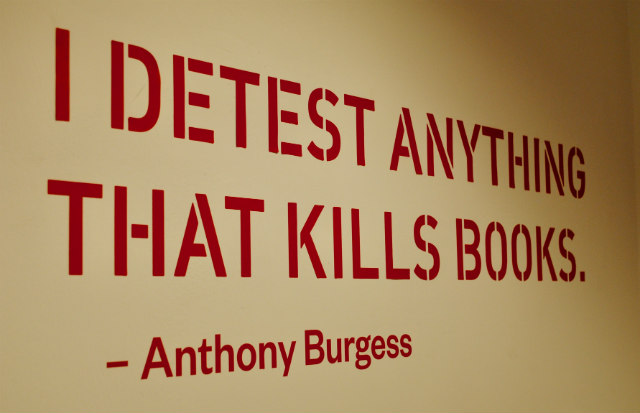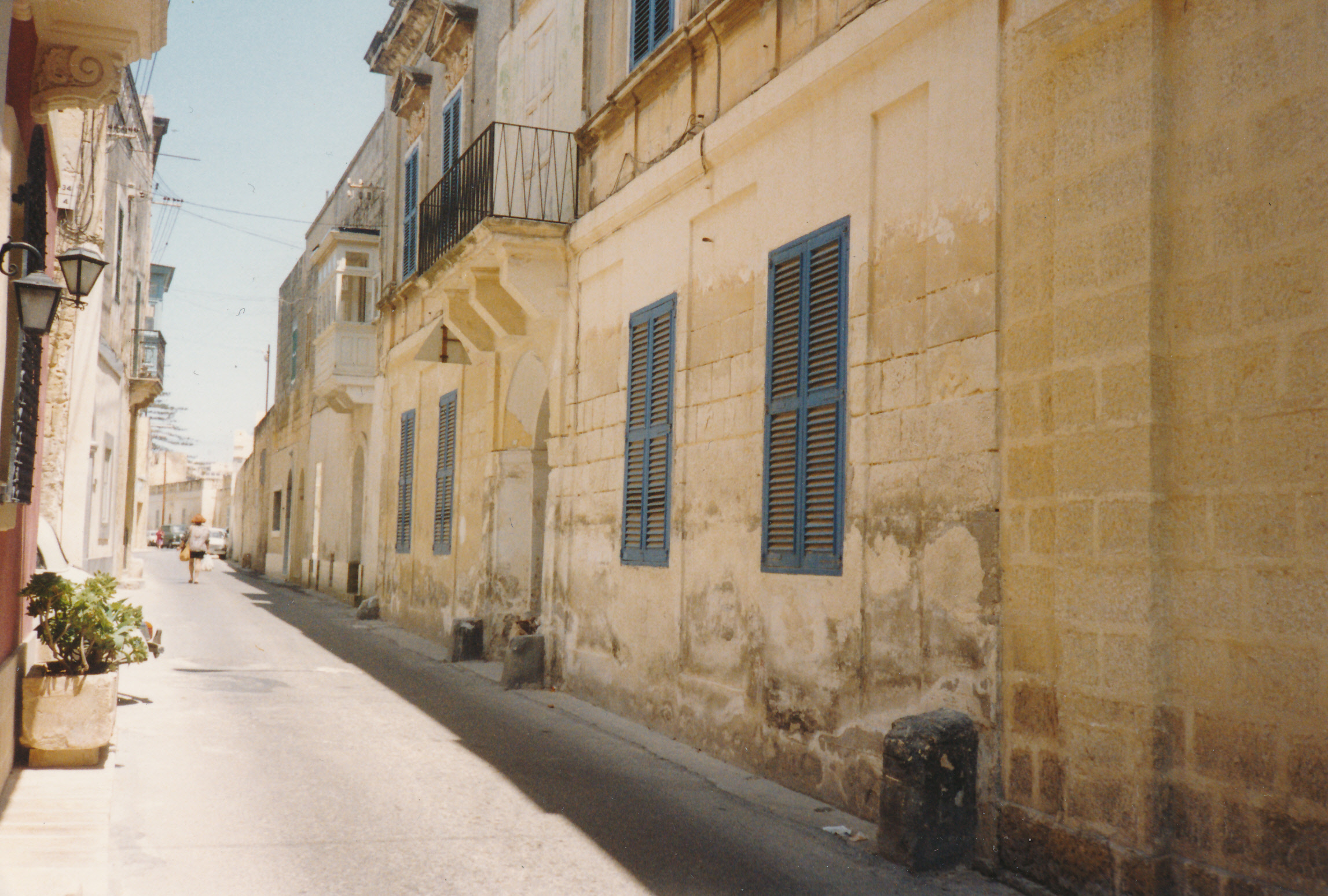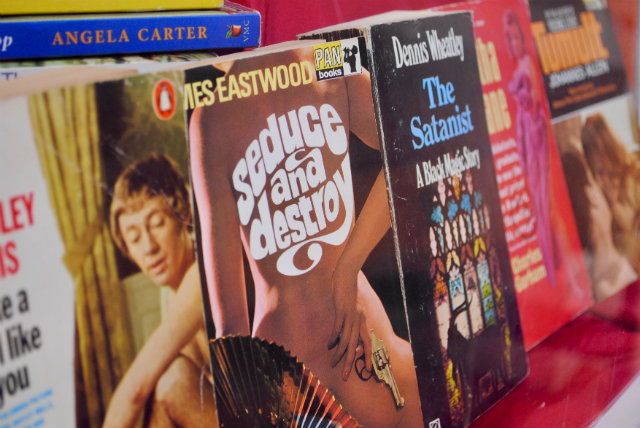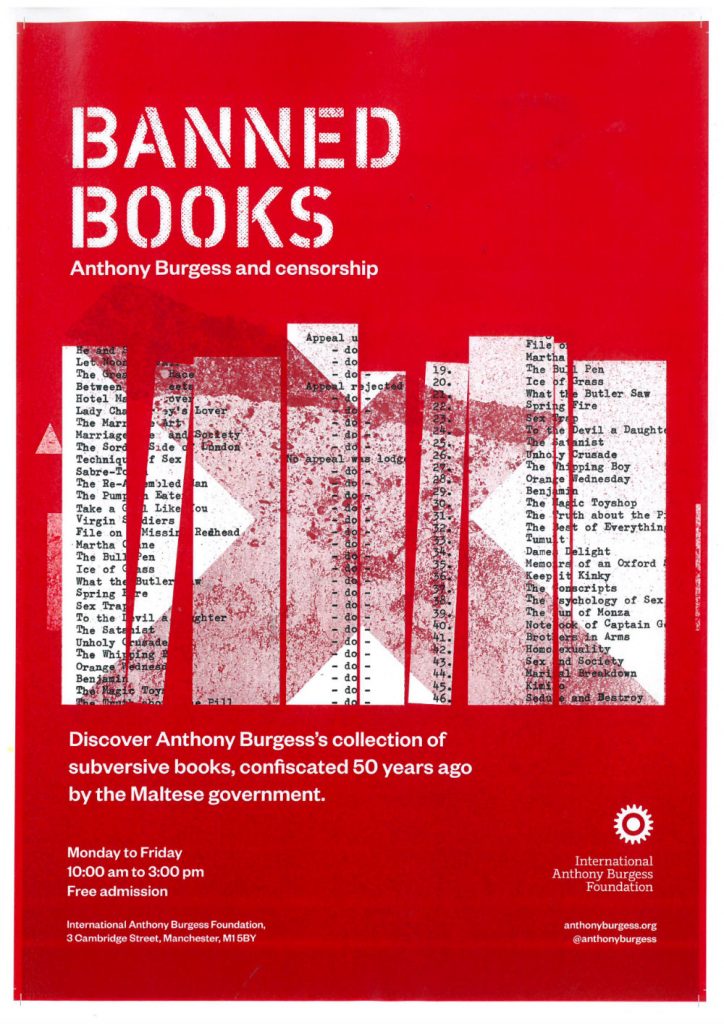BANNED BOOKS: Anthony Burgess and Censorship
-
Burgess Foundation
- 21st June 2018
-
category
- Banned Books

Our new exhibition reconstructs the collection of ‘indecent’ books owned by Anthony Burgess and destroyed by the Maltese government.
In October 1968 Anthony Burgess married his second wife, Liana Macellari, and they decided to leave England for good. They bought an eighteenth-century palazzo in Malta and decided to begin a new life there. They packed up their possessions, including Burgess’s extensive library, and looked forward to moving into their new home at 168 Main Street in the town of Lija (pictured below), about six miles outside Valletta.
 When they arrived in Malta in November, Burgess was horrified to discover that 47 of his books had been seized by the Ministry of Trade, Industry and Agriculture because they were thought to be indecent. Among them were literary novels by Angela Carter, Kingsley Amis and D.H. Lawrence. Burgess was given a receipt for the confiscated books, which were driven under police escort to the hospital and incinerated.
When they arrived in Malta in November, Burgess was horrified to discover that 47 of his books had been seized by the Ministry of Trade, Industry and Agriculture because they were thought to be indecent. Among them were literary novels by Angela Carter, Kingsley Amis and D.H. Lawrence. Burgess was given a receipt for the confiscated books, which were driven under police escort to the hospital and incinerated.
His problems did not end there. Working as a book reviewer for publications such as the Times Literary Supplement, the Observer and the New York Times, Burgess found that his review copies of new books by Thomas Pynchon and Doris Lessing were seized by customs officers, who suspected that they might be full of blasphemy, obscenity, pot-smoking and feminism.
Such was the severity of censorship in Malta in the 1960s that medical textbooks and scholarly works of anthropology were regularly tossed into the flames, along with magazines carrying adverts for bikinis, and any books whose covers suggested that morally polluting content was lurking within.
When Burgess spoke out against Maltese censorship in a famous lecture, ‘Obscenity and the Arts’, delivered at the University of Malta, the government responded by confiscating his house. Shortly afterwards he and his family moved to Italy. But he took his revenge by criticizing the repressive, priest-ridden culture of Malta in fiery novels such as MF and Earthly Powers.
Fifty years after Burgess arrived in Malta, the Burgess Foundation has reconstructed his library of banned books, working from documents in the archive. Although the original books were destroyed, we have acquired second-hand copies in editions that would have been familiar to Burgess. This collection of banned books stands at the heart of our new exhibition, which also considers Burgess’s other writings about censorship and religion.
The exhibition includes an archive audio recording of Burgess delivering a lecture titled ‘Can Art Be Immoral?’ There is also an unpublished poem, ‘An Essay on Censorship’, correspondence with Hubert Selby (author of Last Exit to Brooklyn), photography by Liana Burgess, and a gallery of blown-up book covers.
Valletta is the European Capital of Culture in 2018, and ‘Banned Books: Anthony Burgess and Censorship’ celebrates the role Burgess played in helping to bring about the lifting of state censorship in Malta.
The exhibition is open Monday to Friday from 10am to 3pm until 30 September 2018. Admission is free.




